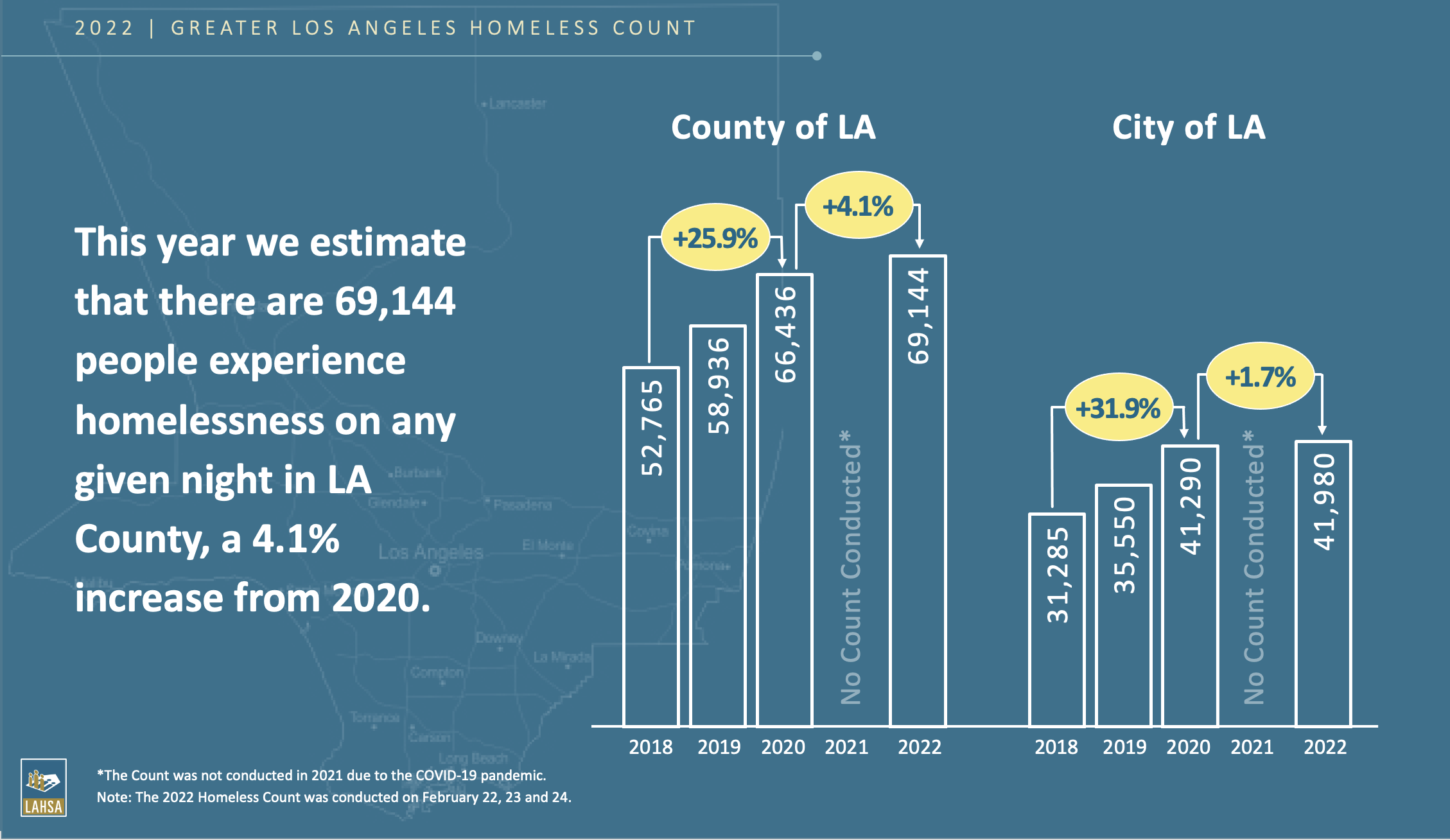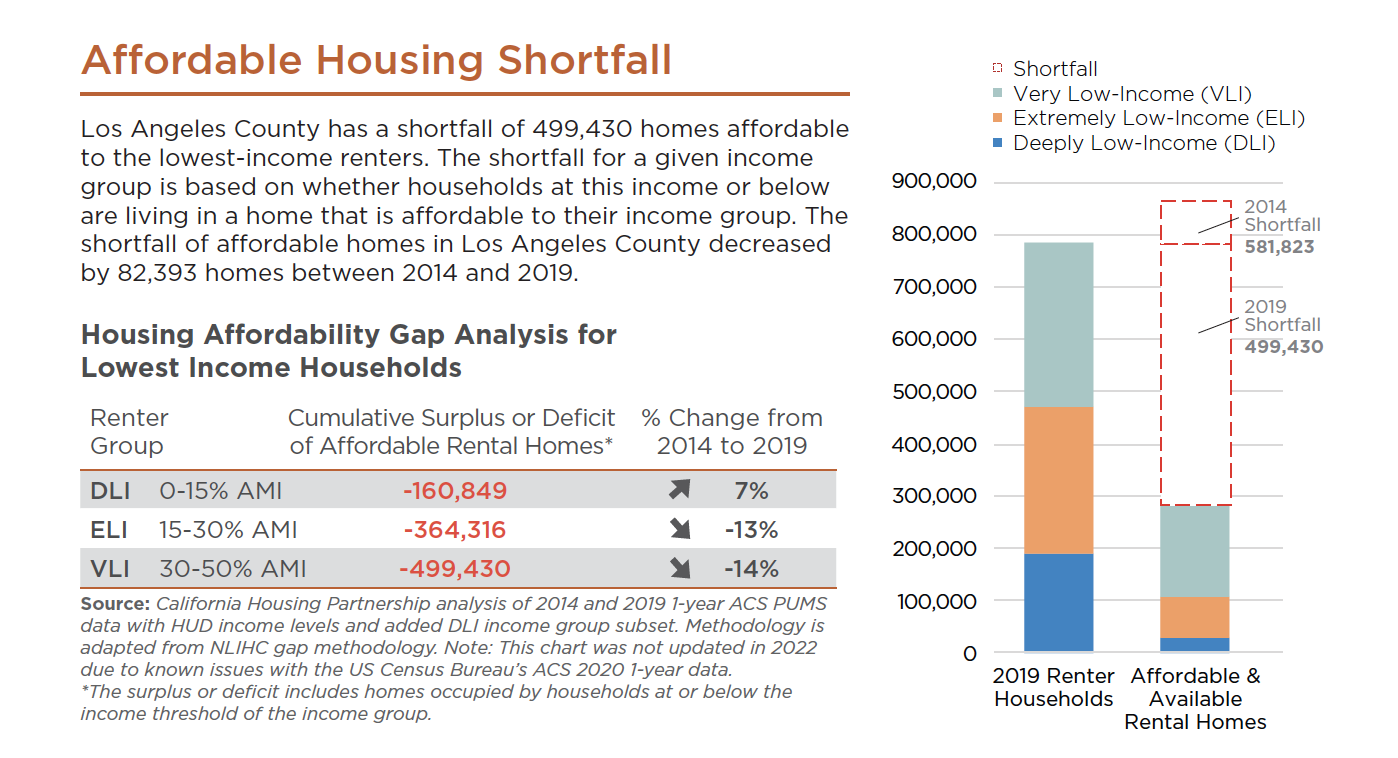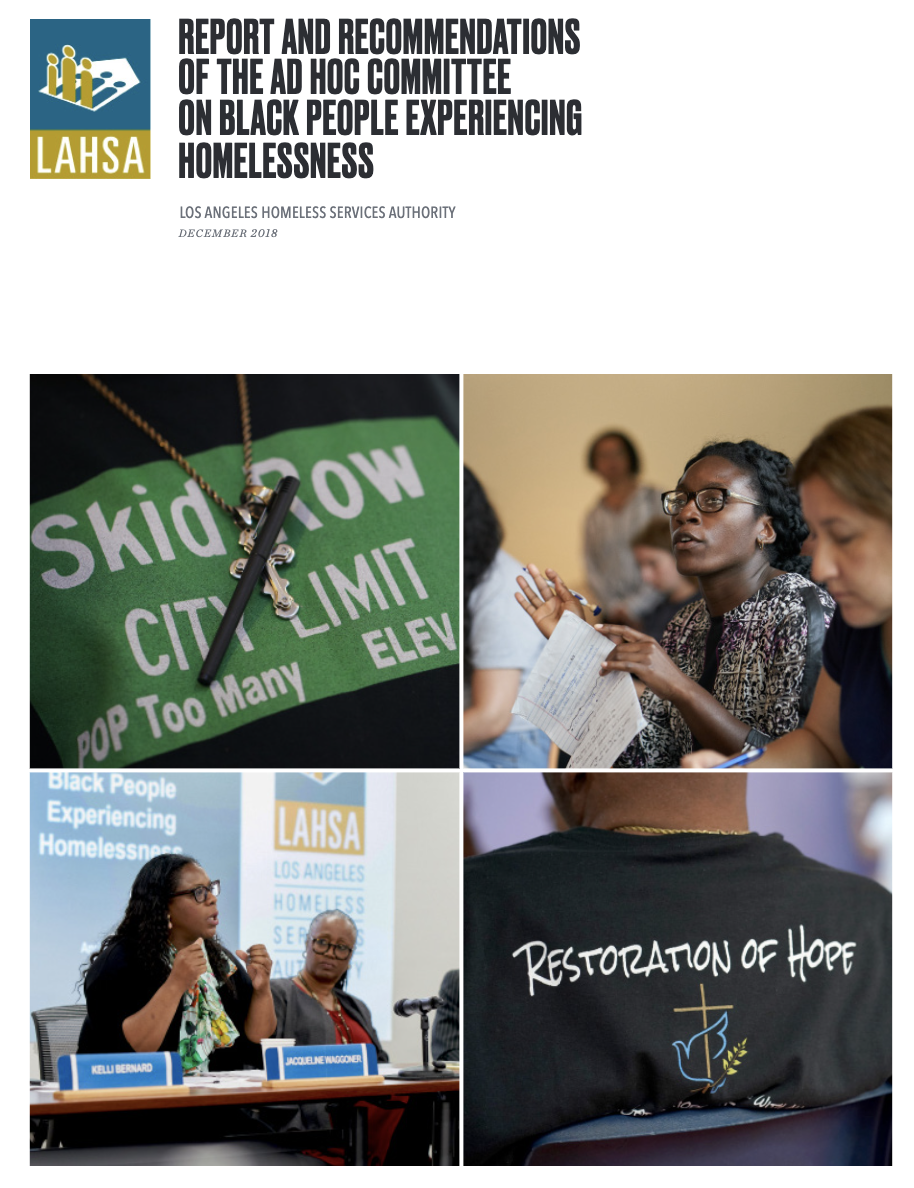THE HOMELESS CRISIS
Homelessness is a complex crisis that was decades in the making, the result of soaring rents and stagnant incomes, racism, the economic impact of the COVID-19 pandemic, and many other causes.
The reasons individuals become unhoused are complicated and often multifaceted. Those that become unhoused are frequently rent-burdened, live paycheckto-paycheck, and many report suffering from serious mental illness or substance abuse issues. One-time events such as job loss, medical incidents, significant unforeseen costs, and no-fault evictions, also often lead individuals to become unhoused.
Despite substantial gains in housing and services, the 2022 Greater Los Angeles Homeless Count by the Los Angeles Homeless Services Authority (LAHSA) found 69,144 people experiencing homeless countywide, a 4.1% increase from 2020 (no Count was conducted in 2021, due to the pandemic). About 70% (48,548) of County’s homeless population is unsheltered.
LAHSA noted the 4.1% increase between 2020 and 2022 was significantly less than the 25.9% increase between 2018 and 2020, and suggested this “flattening of the curve” may be due to emergency measures that helped keep people in their homes during the pandemic.


One of the primary drivers of homelessness is the severe lack of affordable housing.
According to the 2022 LA County Annual Affordable Housing Outcomes Report by the nonprofit California Housing Partnership, the County has a shortfall of 499,430 affordable homes.
Even though the shortage of affordable homes remains large, this shortfall is 82,393 less than in 2014.
Black people are overrepresented in the homeless population nationwide. The groundbreaking 2018 report by LAHSA’s Ad Hoc Committee on Black People Experiencing Homelessness noted that while Black people represented only 9% of the County’s general population in 2017, they comprised 40% of the homeless population.
According to the report, “The impact of institutional and structural racism in education, criminal justice, housing, employment, health care, and access to opportunities cannot be denied: homelessness is a by-product of racism in America.”
The County’s Anti-Racism, Diversity, and Inclusion (ARDI) Initiative is currently developing an action plan to implement the 67 recommendations developed by the Ad-Hoc Committee on Black People Experiencing Homelessness, along with a Racial Equity Action Plan.

